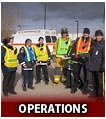




Home > Critical Incident Stress Management > Surviving Critical Incident Stress


Critical Incident Stress Survival Suggestions
People cope with critical incidents (CI) in many ways. Here is some information to help you understand and choose what’s best for YOU.
Expect the incident to affect you
You may notice physical, emotional, behavioral or mental reactions such as: flashbacks, restlessness, sleep problems, loss or gain in appetite, sadness, lethargy, disorientation, anxiety, anger, guilt, concentration problems, sexual problems, etc. Most of these reactions are normal.
Most critical incident stress (CIS) symptoms are expected to subside within 3 to 4 weeks after the CI. Though the memories may remain, the pain lessens. The more you are able to talk about it, the easier it will get each time.
Avoid alcohol or other drugs
CIS will drain you physically and psychologically and you may feel its impact even weeks after the CI. Alcohol and drugs will dull your brain and enable you to escape this painful state temporarily without having to address the CIS issues.
However, once the effects of the drugs or alcohol wear out, not only are you left struggling with the resulting depression and nausea, but also no psychological healing has taken place. By opting for short-term relief, you slow down the healing process and the issues and symptoms persist.
Eat well and exercise
Coffee, tea and sugary foods may create uplift, but there is a boomerang effect afterwards. The body produces extra chemicals to restore the balance, which can leave you emotionally lower than before. Regular meals and healthy foods will keep you in balance.
Exercise cleanses the body of stress and releases endorphins in the brain, which makes you feel better. Some vigorous exercise within 24 hours of the incident will bring relief. Exercising regularly thereafter will help you manage the residual stress as you deal with the CIS in the following weeks.
Educate yourself about critical incident stress
What may seem to be unusual reactions often are just normal responses to an abnormal situation.
Do not isolate yourself from family, friends, and co-workers
Fight the urge to withdraw into a shell. People do not have to “understand” in order to care. Consider remaining involved with others - you may find that by doing so, you heal faster.
Give yourself time to heal
CIS can hit hard. Be kind to yourself. Self-criticism and pressure can slow healing.
Do not get obsessed by the incident
Some people become obsessed with finding reasons for the critical incident. Life feels meaningless and unfair. Unfortunately, you may not have all the answers, but many of them will come in time. Be patient with yourself and with others.
Assess your situation carefully before returning to work
For most workers experiencing critical incident stress, work speeds up healing by focusing the mind and making it harder to dwell incessantly on the incident.
If the incident is staying with you longer than you think it should, call the Office of the Fire Commissioner at 945-3322 or 1-888-389-3473.
If you or a colleague, family member or friend has suicidal thoughts as a result of their involvement in a critical incident obtain help immediately.
CISM team 24-hour emergency hotline at 1-888-389-3473